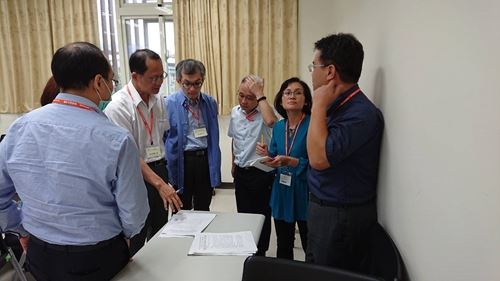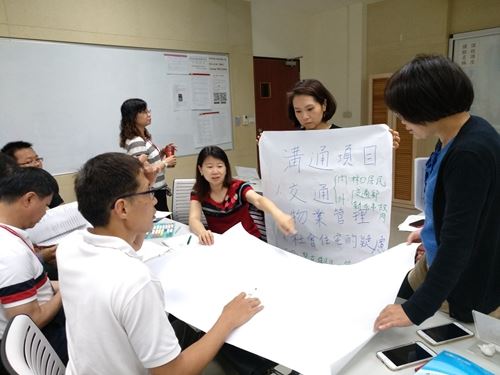Goals
To nurture junior civil servants and police officers aiming for a higher position with needed knowledge and capabilities, as well as reserve senior civil (police) service manpower.
Trainees
Trainees are limited to Junior Rank (Grade 9) civil servants or Level 1 police officers. Once they reach a specific level of performance appraisals and years of experience, their employer can recommend them to participate in this training. Annual number of trainees is around 1,200.
Courses
According to the annual training course list promulgated by the Civil Service Protection and Training Commission, the courses have five units, i.e. ’’important national policies and issues’’, “core competencies”, “government governance and national development”, “course scoring and assessment”, “course mentoring and general activities”. The training period is four weeks; 120 hours.
Features
- Teaching material research and development: to ensure our teaching materials and cases are theoretical and practical, we not only consider instructors’ and trainees' feedback on the materials for improvement, but also collect the most frequent project report topics and cases used by trainees, and expand materials and cases accordingly. To enhance training benefits, we add local cases, disaster prevention incidents, and crisis management cases for public protest incidents, social medial cases, and news response contents and cases to enrich our materials.
- Cross-disciplinary learning: in 2003, the NACS launched the training for Promotion from Junior Rank to Senior Rank, while in 2008, we initiated training for Police Officers Promotion from Junior Rank to Senior Rank. Considering that both training programs are developmental training at a similar service level, we then combine both programs into one to improve the exchanges of police officers and junior civil servants and strengthen the training effects.
- Teamwork: training courses integrate with current public issues to formulate research topics. Through team interaction, brainstorming processes, and integration of trainees’ diverse opinions, trainees are able to identify the cause and effect of problems in practical scenarios and propose strategic solutions.
- Single channel for promotion: According to Article 17 of the Civil Service Employment Act, civil servants are required to undertake an examination or pass a training program before accessing a qualification for promotion. According to the amendment (Jan. 7, 2015) to the Civil Service Promotion Examination Act, the last promotion examination to be senior civil servants is held in 2019. From then on, such promotion examinations will no longer be available.
Assessment
“Life management, group discipline and activity performance scores” and “course scores”. “Course scores” are divided into “project report” and “case-based essay”. Case-based essay is open-book examinations.
|

Trainees are in discussion of writing a project report
|

Group discussion and exercise
|